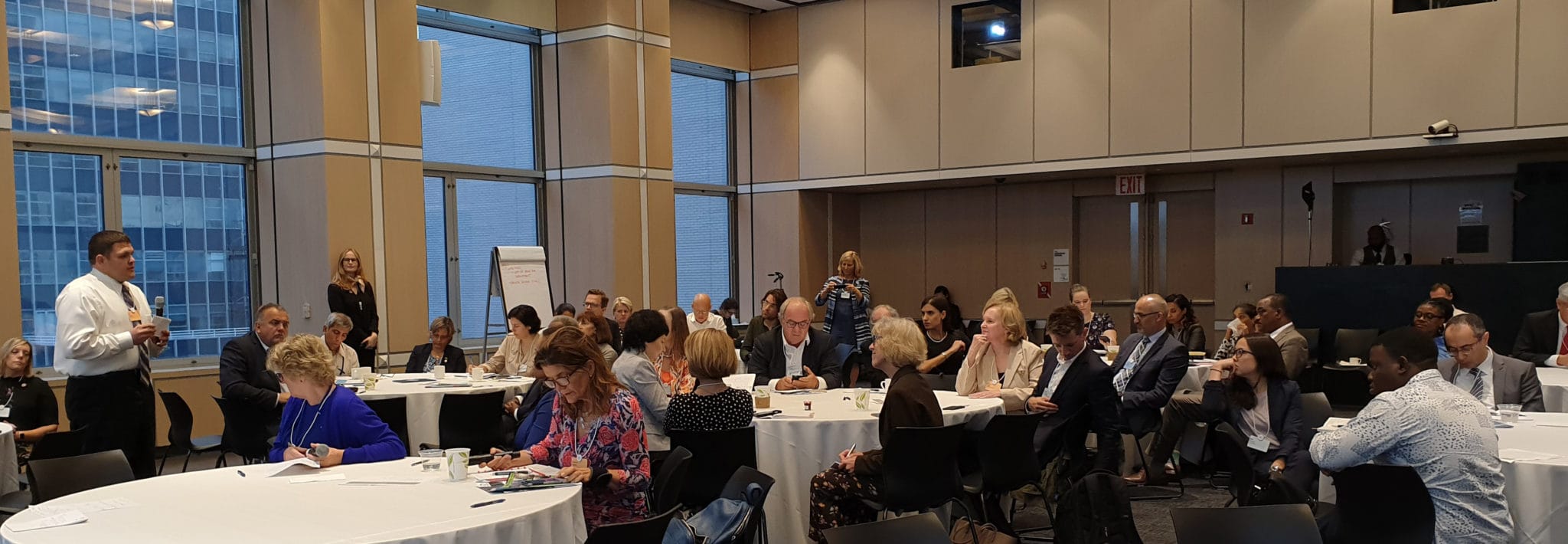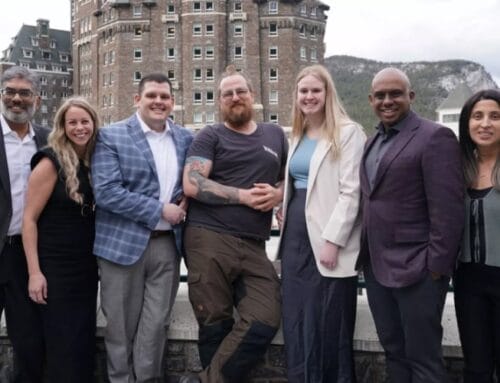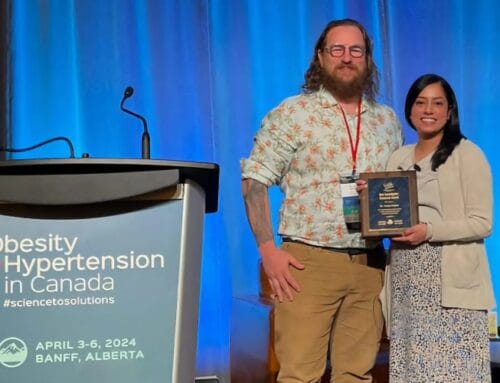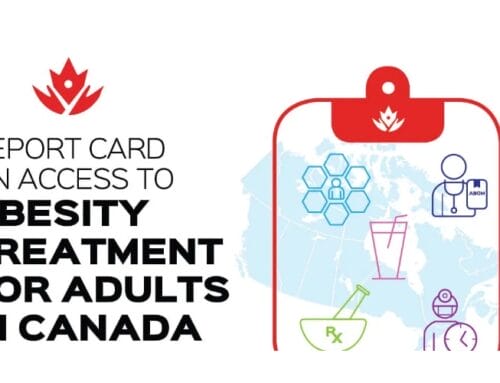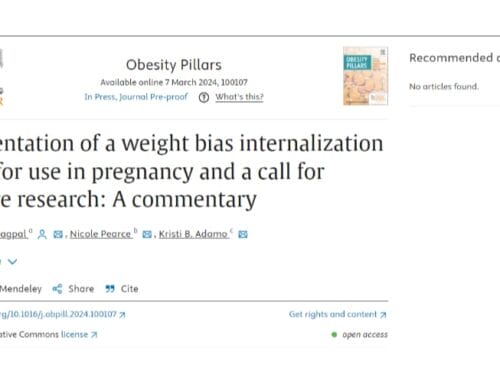by Ian Patton
On September 26th the World Obesity Federation and the World Economic Forum joined forces to host a side event at the United Nations General Assembly in New York, NY to discuss the importance of prioritizing obesity as a noncommunicable disease on a global scale. The event was well attended with 100 participants, including health ministers and policy makers from around the world. It was clear from the start that Obesity Canada is seen as a global leader in realm of obesity treatment, management and prevention. Our Executive Director Dr. Ximena Ramos-Salas moderated the event, sparking lively conversations among the international crowd.
Unfortunately, the Canadian government did not send a representative.
I was invited to represent the patient perspective of living with obesity, and it was an absolute honour to be in that room speaking up and working towards improving the lives of individuals living with obesity. I am passionate about my work with Obesity Canada and helping to elevate the voice of individuals living with obesity, and representing Canada on a global scale was exciting and rewarding.
I was tasked with summarizing the whole meeting from a patient perspective. I listened carefully to all of the discussions and points being raised. Much of the conversation surrounded weight bias and discrimination and then heavily focused on individual prevention and policy ideas. I had two key messages that I delivered in my conclusion in response to these discussions.
First, the room was full of wonderful individuals from around the world who had an interest in changing the narrative of obesity, and they should be commended for that. We discussed weight bias and in that room it was clear that, while sympathetic, most of the room had never experienced the bias that we experience daily. My first message to the crowd was, “I know many of you do not know what it is like to live with obesity and to navigate the world in a larger body, so you will not be able to relate to myself or my peers on that level, but you are all human, so we can relate to each other there. And that is how we should be treated, simply human.” We deserve to be treated with the same dignity and respect afforded to anyone and that should be the basis for addressing weight bias.
Second, the conversation was dominated by ideas of policy surrounding prevention and specifically focusing on curbing childhood obesity. Ideas like taxation on sugar-sweetened beverages, banning advertising to children, school-based nutrition and physical activity initiatives and more. Now, I fully support all of those prevention initiatives but I felt that the crowd was missing a big piece of the picture and needed to be redirected. “While all of these prevention initiatives have value, and focusing on influencing healthy lifestyles early is important, they will not be effective as stand-alone efforts. The single most impactful prevention technique will be treating and managing the existing obesity,” I said.
Individuals living with obesity make up a significant percentage of our adult population — these are the parents, grandparents, siblings and friends who will influence and reinforce healthy behaviors at home. By supporting and treating these people with evidence-based practices, we will be effectively implementing prevention strategies for those close to that individual.
I also shared an analogy that I stole from obesity expert Dr. Yoni Freedhoff: that obesity is a flood, and in order to stop a flood we need many sandbags, piled on top of eachother. Each intervention, whether it be taxation on sugary drinks, school-based physical activity, nutrition education, are all just single sandbags. In and of themselves they will do very little to hold back the flood waters.
Obesity is extremely complex; there is no singular cause and no single solution, so we need to shift our focus from simplistic prevention and one-off interventions to comprehensive and holistic policy that reflects the complexity of the disease. We need to take all of these individual sandbags and pile them together, and we need to add more sandbags to the ones already in place.
Ian Patton, PhD is Obesity Canada’s Public Engagement Coordinator

